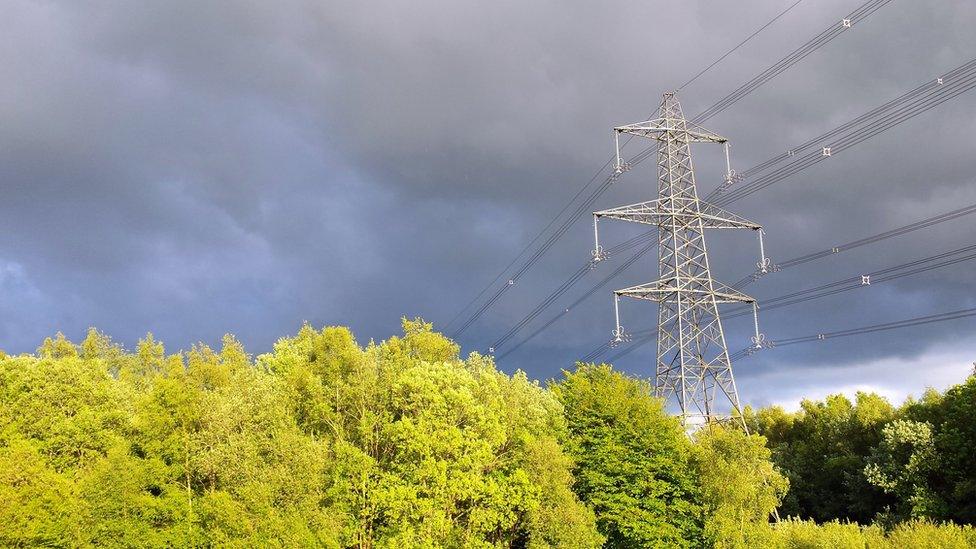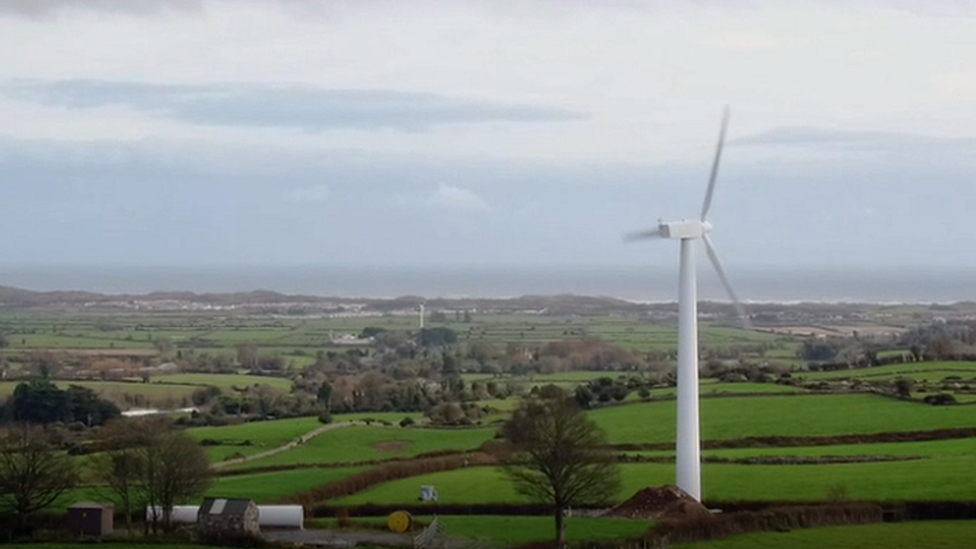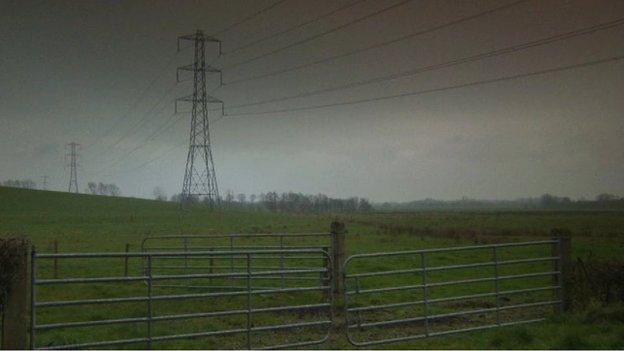North-south interconnector 'would boost efficiency of electricity transmission'
- Published

The North-South Interconnector is a major infrastructure project, linking the electricity grids on both sides of the border
The proposed north-south interconnector would improve the efficiency of electricity transmission on the island of Ireland, according to a new report.
It would also lower the costs of generation.
The report, external is by the Economic & Social Research Institute and the Shared Island Unit in the Department of the Taoiseach.
It found the link would allow for higher levels of renewable energy to be used.
Both Northern Ireland and the Republic of Ireland now share a common goal of 80% renewable energy by 2030.
Until recently, Northern Ireland had a target of 70% by 2030.
The All-island Co-ordination of Energy Infrastructure and Renewable Energy Supports report says the benefits of aligning climate and decarbonising goals in the two jurisdictions are best realised with increased connection.
And it says a higher level of renewables usage could reduce electricity prices by 4%.
Report author Dr Niall Farrell said that while the system was already close to optimal efficiency, the interconnector was important for achieving savings.
'No regrets'
"To date, consumers in the integrated single electricity market on the island of Ireland have benefitted from the alignment of renewable energy policy in each jurisdiction," he said.
"Our research shows that continued alignment will continue to benefit consumers, while the construction of the north-south interconnector will facilitate these benefits."
He added that increasing storage for energy was a "no regrets" policy.
The north-south interconnector is a major infrastructure project, linking the electricity grids on both sides of the border.
It has been the subject of a number of legal challenges, with environmental opposition in both Counties Tyrone and Meath.
Planning approval was first granted for the southern section in the Republic of Ireland in 2016.
The northern section was given the go-ahead by the then-infrastructure minister Nichola Mallon in 2020, after previous consent in the absence of a minister was quashed.
In a subsequent court challenge, a High Court judge refused to overturn planning permission, despite identifying a legal flaw in the decision-making process.
Local campaigners continue to lobby against the project.
Related topics
- Published20 January 2022

- Published14 September 2020

- Published21 December 2016
